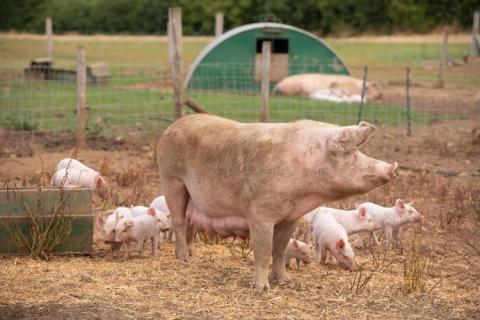Resilient, sustainable livestock production is a major gap in the future food system. In the UK, outdoor pig production represents 40% of the breeding herd, but production efficiency and environmental impact are particularly vulnerable to changing climate and extreme weather events. This research will integrate local weather information and precision farming technology to improve our understanding of adaptation options for extreme weather events, with a view to developing a climate-smart, resilient and sustainable production system. Individual animal tracking and monitoring will be used to quantify feeding behaviour, activity levels and non-point source manure loading. Local weather data (temperature, rainfall, wind speed and humidity) collected from the farm’s weather station and high resolution short-term precipitation forecasts will be integrated with the behaviour data to develop optimised precision nutrition programs to mitigate environmental emissions for different weather conditions. Weather data and land-atmosphere gas flux monitoring will be used to estimate transport to receiving waters of manure and soil nutrients via the routes of soil infiltration and overland flow and antecedent changes in carbon (C) and nitrogen (N) greenhouse gas (GHG) fluxes. Process-based modelling of soil C and N dynamics will be used to estimate the effect of manure loading on GHG fluxes in different weather conditions. Weather-informed feeding strategies and stocking practices will be investigated using animal-based and production measures, soil pore water, gas emission and surface drainage chemistry. The research outputs will improve on-farm climate services and technology integration, ensuring future outdoor pig production is sustainable and resilient to climate variability and change.
Project Outputs
- How farmers can adapt to climate change? (video) – UK Centre for Ecology & Hydrology
- Webinar: 2 December 2020: Smart systems approaches for climate resilient livestock production with Professor Lisa Collins (University of Leeds) and Karro Food Group Ltd. Part 1, part 2, part 3 and part 4.

